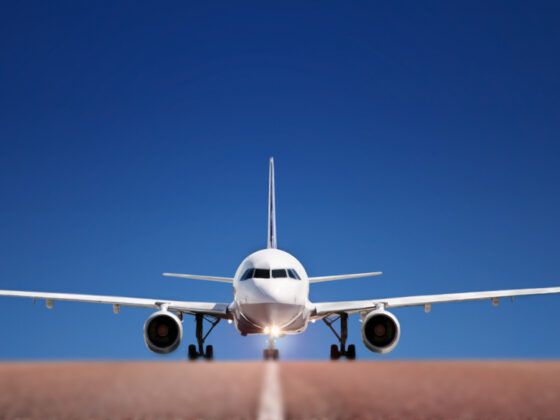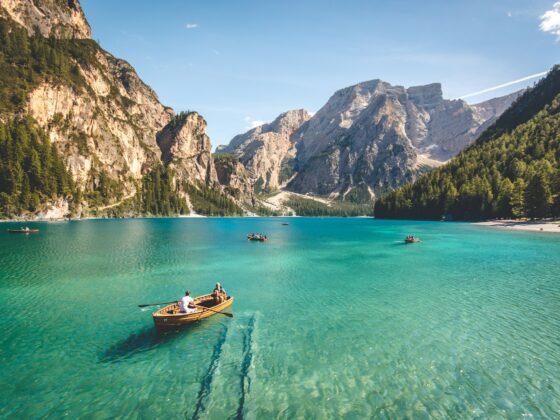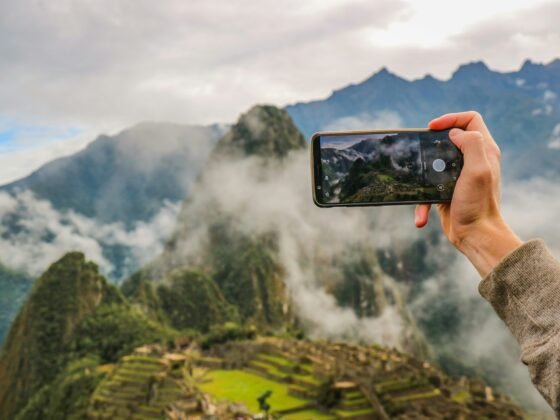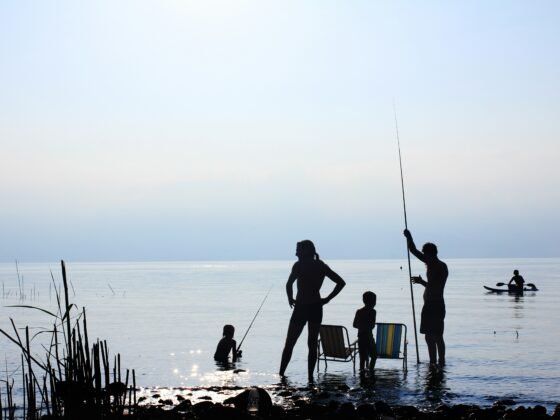It’s essential to remember that when traveling to a Spanish-speaking country, being able to communicate in the local language can greatly enhance your experience. One indispensable phrase for any traveler is ¿Dónde está el baño? which means Where is the bathroom? This phrase can save you from potential uncomfortable situations and it’s always useful to know when exploring new places.
Another important phrase for travelers is ¡Salud! which means Cheers! Using this simple word at a local bar or restaurant not only shows respect for the culture but also allows you to connect with locals in a meaningful way.
Embracing these essential phrases not only makes your travels smoother but also demonstrates a genuine interest in the local culture, fostering deeper connections and memorable experiences along the way.
Let’s talk about some essential Spanish phrases!
¡Bienvenidos! Welcome to the world of essential Spanish phrases that every traveler needs to know. As you embark on your journey to a Spanish-speaking destination, mastering these key phrases will not only enhance your travel experience but also help you connect with locals on a deeper level. Whether you’re exploring the bustling streets of Madrid or relaxing on the beautiful beaches of Mexico, these essential phrases will be your passport to effortless Spanish communication and cultural immersion.
Learning a few simple greetings and expressions in Spanish can open doors to unforgettable experiences and meaningful connections during your travels. From ordering delicious local cuisine to navigating through vibrant markets, being able to communicate in Spanish will enrich every aspect of your adventure. So, get ready to dive into this captivating language and unlock a world of possibilities as you explore new destinations and create lasting memories with native Spanish speakers. Let’s delve into the richness of the language and discover how these essential phrases can make your travel experience truly extraordinary!
Greetings and Polite Expressions
As a traveler, mastering greetings and polite expressions can open doors to meaningful interactions in any destination. In Spanish-speaking countries, the art of greeting goes beyond mere formality—it’s a cultural ritual that reflects respect and warmth.
The common phrase ¡Hola! ¿Cómo estás? (Hello! How are you?) serves as an essential icebreaker, paving the way for genuine connections with locals.
Another crucial expression is Por favor (Please), which signals politeness and consideration in everyday interactions, whether you’re ordering a meal or asking for directions.
Moreover, understanding the nuances of formal and informal greetings is key to navigating social dynamics in Spanish-speaking communities. Addressing someone with Buenos días (Good morning) or Buenas tardes (Good afternoon) demonstrates your awareness of appropriate etiquette, while using ¿Cómo está usted? instead of ¿Cómo estás? shows deference towards seniors or people in professional settings. By embracing these subtle differences in language and custom, travelers can leave a positive impression and forge authentic connections during their adventures in Spanish-speaking regions.
Asking for Directions
Asking for directions in a foreign country can be a nerve-wracking experience, but it’s also an opportunity to connect with locals and immerse yourself in the culture. Instead of relying solely on maps and GPS, consider asking for directions as a chance to engage with the people around you. Not only will you potentially receive clearer and more personalized guidance, but you’ll also create lasting memories of the people who were kind enough to help you find your way.
When asking for directions in Spanish, remember that communication goes beyond just words. Use hand gestures, facial expressions, and simple phrases to convey your message effectively. This not only helps bridge any language barriers but also shows that you’re making an effort to communicate in their native tongue. By approaching asking for directions as an opportunity for cultural exchange rather than just a practical necessity, you’ll enrich your travel experience and potentially make new friends along the way.
Ordering Food and Drinks
When it comes to ordering food and drinks in Spain, knowing a few key phrases can enhance your dining experience and make you feel more confident. Rather than just saying I’ll have the same as him, try asking for recommendations or inquiring about popular local dishes. This not only shows respect for the culture but may also lead to discovering new and exciting flavors.
Furthermore, don’t be afraid to embrace the local customs when ordering drinks. In many Spanish cities, it’s common to enjoy a small tapas dish with each drink – so why not immerse yourself in the true Spanish way of living? Finally, remember that customer service expectations can vary from country to country, so approaching servers with politeness and patience can go a long way in ensuring a pleasant dining experience.
Making Reservations
Making reservations while traveling can make or break your experience. Whether it’s a hotel, restaurant, or activity, knowing how to effectively book ahead is vital. Not only will making reservations ensure you have a spot at popular destinations, but it also alleviates the stress of last-minute planning.
By mastering essential Spanish phrases like Quisiera hacer una reserva (I would like to make a reservation) and ¿Tienen disponibilidad para esta noche? (Do you have availability for tonight?), you’ll seamlessly navigate the reservation process and avoid frustrating language barriers. Additionally, taking the initiative to secure reservations demonstrates courtesy and respect for local customs, enhancing your overall interactions with locals and creating more rewarding travel experiences.
Emergency Phrases
In the midst of a foreign country, finding yourself in an emergency situation can be incredibly distressing. However, equipping yourself with emergency phrases in Spanish can help alleviate some of that anxiety. Whether you need urgent medical assistance or are facing a threatening situation, being able to convey your needs clearly and concisely in Spanish is vital for your safety and well-being.
Mastering phrases like ¡Necesito ayuda! (I need help!), ¡Llame a la policía! (Call the police!), or ¿Dónde está el hospital más cercano? (Where is the nearest hospital?) can make all the difference in getting the necessary support during an emergency.
Additionally, understanding how to communicate basic first aid terms such as herida (wound), quemadura (burn), or respiración artificial (artificial respiration) could provide lifesaving assistance until professional help arrives. While we always hope for smooth travels, being prepared with these crucial phrases ensures that you are ready to handle any unforeseen circumstances effectively while abroad.
Shopping and Bargaining
Shopping in Spain is not just about purchasing items; it’s an experience that involves the art of bargaining. While some may find it daunting, bargaining is a cultural norm in many Spanish markets and smaller shops. The key to successful bargaining lies in maintaining a respectful and friendly attitude while engaging with the vendor. Spanish phrases such as ¿Cuál es tu mejor precio? (What’s your best price?) or ¿Me puedes hacer un descuento? (Can you give me a discount?) can go a long way in securing a better deal.
In bustling marketplaces like El Rastro in Madrid or La Boqueria in Barcelona, embracing the local practice of bargaining adds an exciting layer to your shopping excursion. Negotiating prices not only allows travelers to potentially save money but also fosters meaningful interactions with local vendors.
Understanding the art of bargaining becomes an immersion into Spanish culture, amplifying the joy of finding unique souvenirs and locally crafted goods while creating memorable experiences during your travels.












